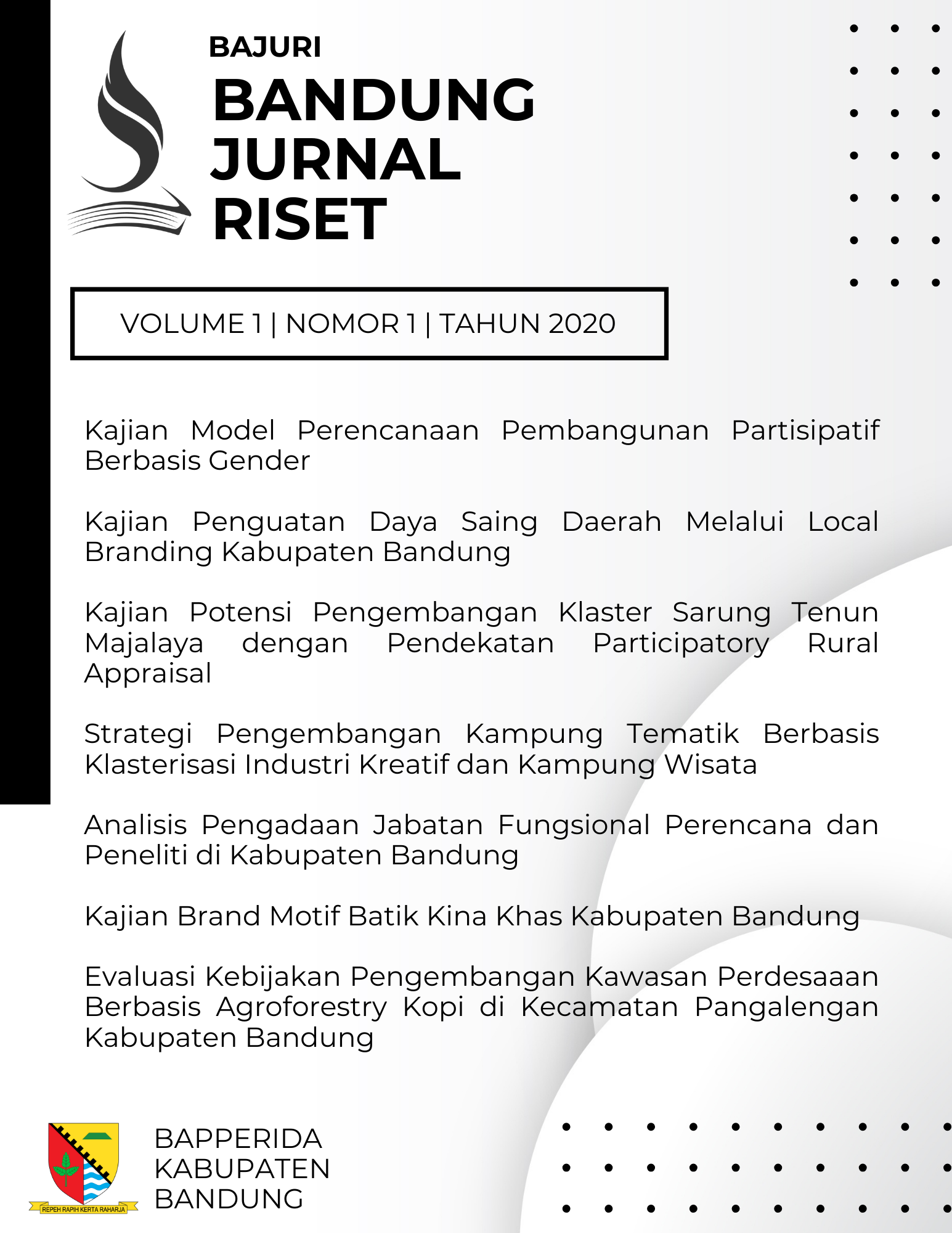STUDY OF GENDER-BASED PARTICIPATORY DEVELOPMENT PLANNING MODEL
Keywords:
planning, development, participation, gender, Bandung RegencyAbstract
Commitment to sustainable development and improvement of the quality of human life underlies the
national development planning system which becomes the framework for the practice of planning
and implementing development at the national and regional levels. In general, the perception of
women's participation in development in Indonesia varies depending on the socio-cultural constructs
that are formed in their respective environments. Women's participation is a manifestation of the
willingness of women as an element of society in village development planning, especially in the
musrenbang and PKK forums. In Bandung Regency, women have a good awareness to participate
in development. They are present in public spaces to discuss public issues, but their presence has not
been matched by a process of involvement in the decision-making process. Government leaders, both
at the community and regional levels, still dominate the role in decision making for priority
proposals. The obstacles that are still faced are related to the capacity of individuals, community
organizations and the government to identify women's interests, articulate these interests as policy
issues in development planning forums, formulate these issues as a policy agenda that will be
implemented into programs and activities. The results showed that there was no difference in terms
of development proposals put forward by women and men, namely that it tended to focus on
infrastructure, even though there were special needs faced by women but they were not well
articulated.





